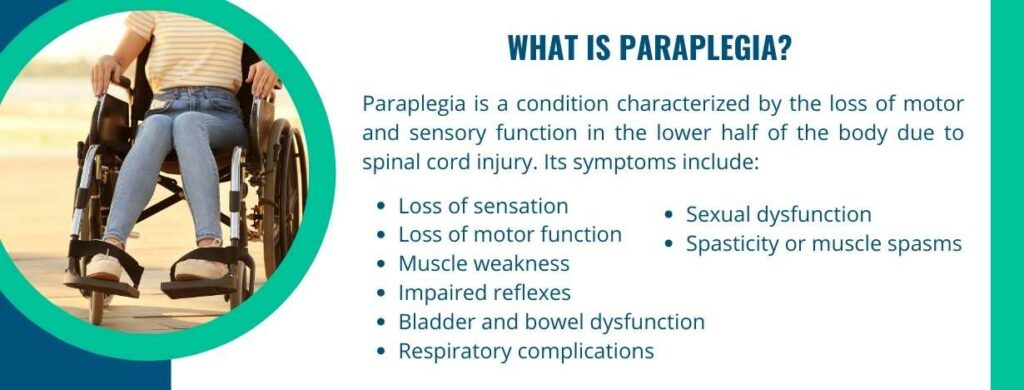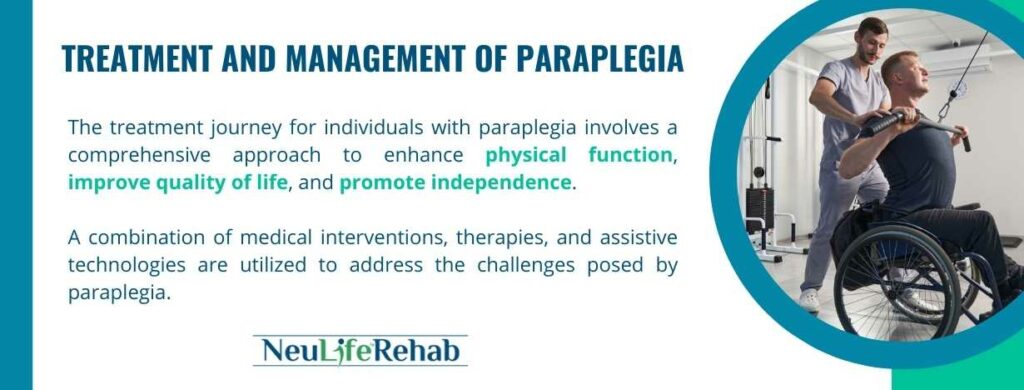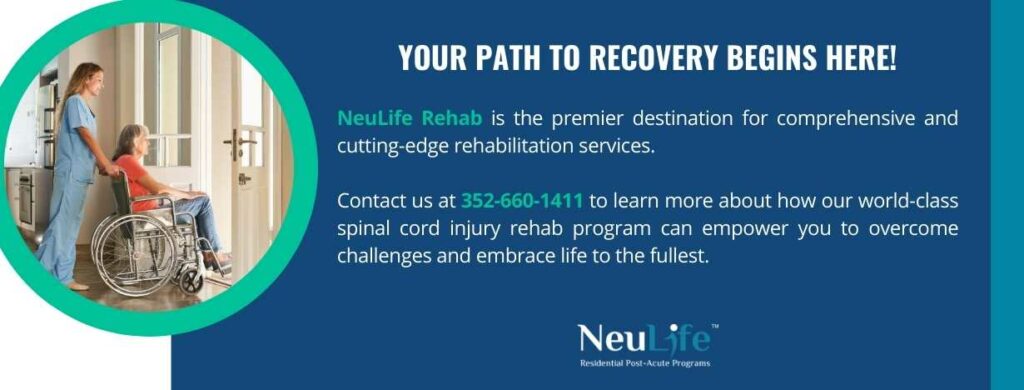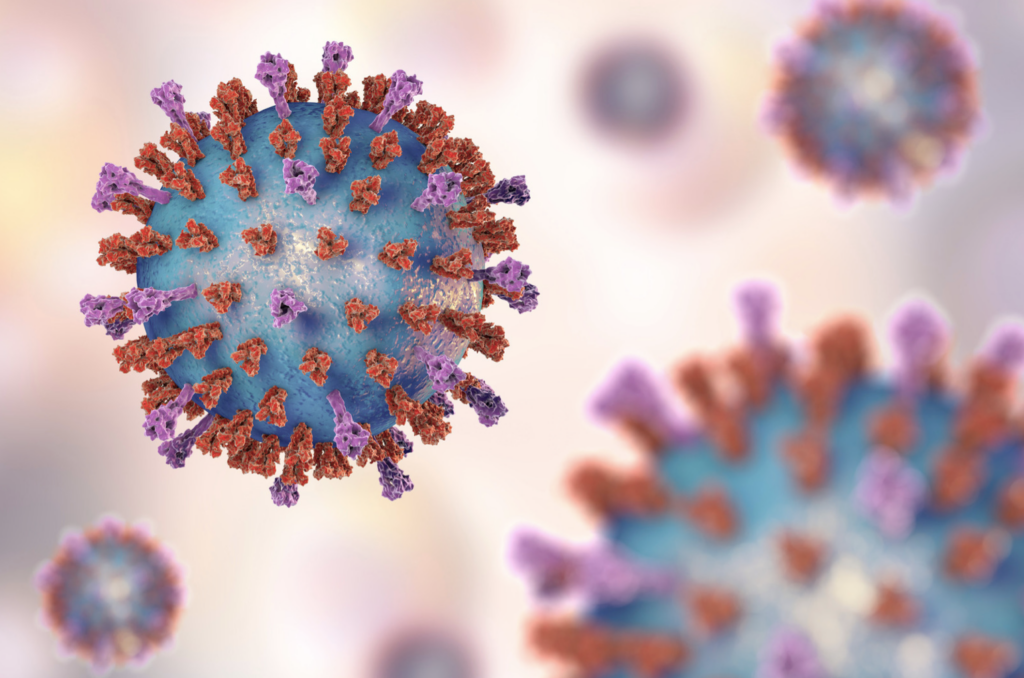Brain injuries are more common than we realize. Car accidents and sports injuries can happen to anyone at any time. And while we often focus on the immediate impact of these injuries, the long-term consequences cannot be ignored. These unforeseen consequences can significantly affect a person's quality of life and ability to function daily.
In this blog post, we will dive into the often-overlooked long-term effects of brain injuries and how they can shape a person's future. Whether you or a loved one has suffered a brain injury or you simply want to understand the potential long-term repercussions, this article is a must-read.
So, let's explore the lasting impact of brain injuries and why raising awareness about their long-term effects is crucial.

Brain injuries are one of the most common and devastating types of injuries. They can have a lasting impact on a person's physical, cognitive, and emotional well-being. According to a study, over 1.7 million Americans sustain a traumatic brain injury each year, with adolescents between ages 15 and 19 and adults age 65 and older among the most likely to sustain a traumatic brain injury.
Brain injury is a broad term for any brain damage caused by external or internal factors. It can be classified into two types:
Brain injury can be caused by a variety of factors, including accidents, violence, and medical conditions. According to the Centers for Disease Control and Prevention (CDC), falls are the leading cause of TBI, accounting for approximately 50% of all cases.
Brain injuries can have long-lasting effects that may not become apparent until years later. These effects can range from cognitive difficulties to changes in behavior and mood. The damage caused by a brain injury can impact a person's daily life, relationships, and overall well-being.
It is crucial to seek medical attention and follow the recommended treatment plan after a brain injury to prevent or minimize long-term problems. If you or a loved one has experienced a brain injury, it is essential to continue monitoring for any emerging issues to ensure proper care and management.

Let us explore the long-term effects of brain injuries, their impact on daily life, and how to manage and cope with them.
One of the most apparent long-term effects of brain injuries is physical impairment. Depending on the severity and location of the injury, it can affect a person's motor skills, balance, coordination, and senses. The physical effects can range from mild to severe and may include difficulty walking, chronic pain, seizures, paralysis, and loss of sensation.
Brain injuries can also result in cognitive impairments that affect a person's ability to think, reason, and process information. These can range from mild difficulties with attention and concentration to more severe impairments in memory, language, and problem-solving. These cognitive impairments can significantly impact a person's daily life, making tasks such as work, school, and even self-care challenging.
Brain injuries can also cause emotional and behavioral changes, which can be distressing for both the person with the injury and their loved ones. These changes can include mood swings, irritability, anger outbursts, impulsivity, and difficulty regulating emotions. These changes can affect relationships, work, and other aspects of daily life.
The long-term effects of brain injuries can significantly impact a person's daily life. It can make it challenging to perform simple tasks, such as getting dressed, cooking a meal, or driving. It can also affect a person's ability to maintain relationships, work, and engage in hobbies and activities they once enjoyed.
Coping with these long-term effects of a brain injury can be a challenging and overwhelming journey, but with the proper support and strategies, navigating these changes and living a fulfilling life is possible.
So, let's dive in and start finding ways to cope with the long-term effects of brain injuries together.
The first step in coping with the long-term effects of a brain injury is to seek professional support. A team of healthcare professionals, including doctors, therapists, and counselors, can provide emotional and physical support and help you manage your symptoms. They can also guide you and your loved ones on strategies to cope with the long-term effects.
Physical activity plays a crucial role in coping with the long-term effects of brain injuries. Exercise helps improve strength, mobility, and balance, which can be affected by a brain injury. It also releases endorphins, which can improve mood and alleviate symptoms of depression and anxiety.
Cognitive rehabilitation is a therapy that focuses on improving cognitive skills, such as memory, attention, and problem-solving, after a brain injury. Working with a cognitive therapist can help you develop techniques and strategies to manage these changes. Cognitive rehabilitation may also involve using technology or other tools to help compensate for any cognitive difficulties.
Living with the long-term effects of a brain injury can be overwhelming, and it is essential to find healthy coping mechanisms to manage the stress. This can include relaxation techniques, such as deep breathing or meditation, joining a support group, talking to a trusted friend or family member, or finding a creative outlet like painting or writing.
Taking care of your overall health is crucial when coping with the long-term effects of a brain injury. This includes getting enough sleep, eating a nutritious diet, and avoiding alcohol and drugs. A brain injury can increase the risk of developing other health conditions, such as high blood pressure and diabetes, so it is essential to attend regular check-ups and follow your doctor's recommendations.
Educating yourself and others about the long-term effects of brain injuries is essential. This can help you understand your condition better and advocate for yourself. It can also help those around you, such as family, friends, and co-workers, understand your needs and provide you with the necessary support.
Are you or a loved one struggling with the long-term effects of a brain injury? Don't let the unforeseen consequences of this life-altering event control your future. The first step towards recovery and a better quality of life is enrolling in NeuLife’s post-acute rehabilitation program.
Our specialized program offers a comprehensive and personalized approach to traumatic brain injury rehabilitation, focusing on physical, cognitive, emotional, and behavioral therapies. Our program addresses the unique challenges and complications of brain injury.
At NeuLife, we understand that the journey to recovery is long and challenging, so we provide a supportive and nurturing environment for our patients. So, if you’re looking online for a trusted “neuro rehab near me,” look no further than the NeuLife Residential Post-Acute Program.
Contact us today to learn more and take the first step toward reclaiming your life.

***
The material on this site is for informational purposes only and DOES NOT CONSTITUTE THE PROVIDING OF MEDICAL ADVICE, and is not intended to be a substitute for independent professional medical judgment, advice, diagnosis, or treatment. Always seek the advice of your physician or other qualified healthcare provider with any questions or concerns you may have regarding your health.
Living with paraplegia presents unique challenges and opportunities for those affected and their loved ones.

This comprehensive guide sheds light on the causes, symptoms, and treatment options available for individuals navigating life with paraplegia.
Paraplegia is a condition characterized by the loss of motor and sensory function in the lower half of the body due to spinal cord injury. The spinal cord一a critical component of the central nervous system一becomes damaged, disrupting communication between the brain and the body's lower extremities.
The symptoms of paraplegia vary based on the extent and location of the spinal cord injury. Common paraplegia symptoms include the following:
These symptoms profoundly impact daily life, necessitating adaptive strategies and specialized care.
Understanding the underlying causes is essential for effective management and prevention. Here, we delve into the primary triggers of paraplegia:
Motor vehicle accidents, falls from heights, sports injuries, and other traumatic events can damage the spinal cord, leading to paraplegia. The forceful impact or compression of the spine disrupts the nerve pathways responsible for transmitting signals between the brain and lower extremities.
Diseases and infections: Certain diseases, such as spinal tumors, infections (like meningitis or spinal abscesses), and autoimmune disorders (like transverse myelitis), can affect the spinal cord and cause paraplegia by damaging nerve tissue or impeding blood flow.
Vascular issues: Conditions restricting blood supply to the spinal cord, such as spinal cord infarction, can result in tissue damage and subsequent paraplegia.
Congenital conditions: Some individuals are born with spinal cord or spine structural abnormalities, such as spina bifida or tethered cord syndrome, which can lead to paraplegia over time.
Degenerative conditions: Chronic conditions like multiple sclerosis or amyotrophic lateral sclerosis (ALS) can progressively affect the spinal cord and lead to paraplegia.
Complications of surgery or medical procedures: In rare cases, surgical complications or medical procedures involving the spine can lead to nerve damage and paraplegia.
Prompt diagnosis is crucial for effective management of paraplegia. Diagnosing paraplegia involves a thorough clinical evaluation that involves medical history assessment and physical examination.
Your physician may also employ diagnostic procedures to determine the extent of spinal cord damage and the underlying cause. This includes the following:
Furthermore, evaluating the patient's psychological well-being and assessing their functional abilities is crucial for designing a comprehensive treatment and rehabilitation plan.

Accurate diagnosis of paraplegia requires a multidisciplinary approach, often involving a team of medical professionals. The gathered information guides the development of a personalized paraplegia treatment strategy.
The treatment journey for individuals with paraplegia involves a comprehensive approach to enhance physical function, improve quality of life, and promote independence.
A combination of medical interventions, therapies, and assistive technologies are utilized to address the challenges posed by paraplegia. Let's explore the available treatment options:
Pain relief medications or interventions may be recommended to alleviate discomfort associated with paraplegia or related conditions. Additionally, medications that can help control muscle spasms and spasticity may be prescribed to improve comfort and mobility.
Are you or a loved one seeking the finest care and rehabilitation following a spinal cord injury or neurological condition?

NeuLife Rehab is the premier destination for comprehensive and cutting-edge rehabilitation services. Our modern and fully-equipped facility is designed to provide an optimal healing environment.
From advanced rehabilitation equipment to comfortable accommodations, every detail is meticulously crafted to enhance your recovery journey. Some of the programs we provide include:
Contact us at 352-660-1411 to learn more about how our world-class spinal cord injury rehab program can empower you to overcome challenges and embrace life to the fullest.
Your path to recovery begins here!
The material contained on this site is for informational purposes only and DOES NOT CONSTITUTE THE PROVIDING OF MEDICAL ADVICE, and is not intended to be a substitute for independent professional medical judgment, advice, diagnosis, or treatment. Always seek the advice of your physician or other qualified healthcare providers with any questions or concerns you may have regarding your health.
The thought of a loved one going to inpatient neurorehabilitation may cause uncertainty. You may have several questions:
Understanding some of these processes may help to put your mind at ease. Armed with knowledge regarding traumatic brain injury rehabilitation expectations, you will feel more confident as you begin your recovery.
Inpatient neurorehabilitation (also known as residential rehabilitation) involves the medical treatment of patients on-site to incorporate a holistic and structured program. Inpatient neuro-rehab improves function, reduces symptoms, and improves patients' overall well-being who have suffered a brain injury.
Patients often transition to inpatient neurorehabilitation after a hospital stay. It is the bridge between hospital and home.
Common reasons patients need residential rehabilitation include:
The goal is to restore some or all of the patient's physical, sensory, and mental capabilities. It is important to note it is an environment that is safe and strives to provide the least amount of restriction possible while still pushing patients to improve.

The length of stay can vary due to several factors and can be unpredictable. That said, many patients stay for two to three weeks, participating in an individualized program. Patients will participate in therapy for a few hours daily, most days of the week.
Factors that influence length of stay include:
Patients can expect a longer stay if they have additional barriers to address.
You will work with a team of medical professionals that includes doctors, nurses, physical therapists, occupational therapists, speech and language pathologists, and other staff. Together they will work with the patient to address limitations. A combination of education, medication, therapies, skills, and rest all are involved in a full neurorehabilitation program.
A thorough evaluation and assessment are completed during the first week to identify patient needs. Next, the patient will participate in therapeutic activities that are at the core of rehabilitation. Finally, a discharge and transition plan is developed, focusing on family education and counseling so the patient will have a successful transition home.
NeuLife Rehabilitation Center is known as one of the best and largest brain injury rehabilitation centers in Florida and throughout the southeast. Our clinicians treat a wide range of diagnoses and injuries with the ultimate goal of functional independence.
We help our patients ‘get their life back’. If you would like more information about our services, do not hesitate to contact us today. Make a referral or give us a call at 800.626.3876.
The material contained on this site is for informational purposes only and DOES NOT CONSTITUTE THE PROVIDING OF MEDICAL ADVICE, and is not intended to be a substitute for independent professional medical judgment, advice, diagnosis, or treatment. Always seek the advice of your physician or other qualified healthcare providers with any questions or concerns you may have regarding your health.
Suffering from a traumatic brain injury (TBI) takes a toll on both the physical and mental wellbeing of patients.
Statistics show that TBIs can lead to mental health issues among one in five patients. A study supported by the National Institute of Neurological Disorders and Stroke cites that TBI could increase the risk of post-traumatic stress disorder or depression.
Experts also learned that mental health disorders were still arising three to six months following the initial injury. Even mild brain injuries apparently have a long-term effect on a patient's mood and can lead to changes in behavior.
NeuLife Rehabilitation is one of the largest brain injury residential facilities specializing in rehabilitation for a wide range of catastrophic injuries. We are accredited by the Commission on Accreditation of Rehabilitation Facilities (CARF) in Brain Injury Specialty Programs and Residential Rehabilitation to provide high-quality care to our patients.
At Neulife post-acute rehabilitation facility, our multi-specialty teams help patients to regain their independence and mobility through supportive care in an ideal environment. We understand the potential effects of the injury on a patient's mental health, so we make sure that all patients get a holistic and high-quality rehabilitation experience in our care.

Here are some mental health issues that TBI patients and their healthcare providers might have to deal with post-injury.
People with traumatic brain injury may experience anxiety without ever pinpointing the reasons. This constant worry can impact patients with TBI when there is already too much going on around them.
A situation that requires processing of information, such as a crowded or noisy place, may be overwhelming to TBI patients and can make them anxious. To deal with this, our staff at Neulife post-acute rehabilitation facility make sure that patients have structured activities and routines. If the anxiety is severe, patients might also have to undergo psychotherapy (counseling) and pharmacologic therapy.
Depression, sadness, frustration, and a sense of loss are common feelings for someone who suffers from brain trauma and who may worry about the long term effects of their condition.
Depression could become overwhelming and interfere with their process of recovery. TBI patients who appear lethargic, have frequent thoughts of death or suicide, or who start withdrawing from others need will access to psychological support.
In addition to counseling and medications, TBI patients with depression may benefit from undertaking exercises and other forms of physical activity. There is a growing number of researches that show that physical activity can decrease the symptoms of depression or even anxiety.
Often, family and friends may complain that a patient with TBI is irritable and quick to anger. Studies show that 71 percent of TBI patients exhibit such behaviour, sometimes with violence. Causes vary, from physical damage to parts of the brain, to emotional problems arising from the life changes brought about by the injury.
A TBI patient who is irritable may also tire easily, feel depressed, and have difficulty concentrating or following a conversation. While there are medications to help control anger issues, teaching patients how to perform calming strategies or relaxation techniques can improve outcomes. The patient's family members should also keep in mind that the outbursts are not personal.
At Neulife Rehab, our professional staff makes sure that you and your family are being taken care of by the best specialists in the area. We encourage you to find out more about our facility and our programs.
NEULIFE REHABILITATION REMAINS OPEN AND DILIGENT THROUGH THE COVID-19 CRISIS. We remain open for business with the ability to admit those in need of ongoing Post-Acute Rehabilitation Services. Our first priority is the safety of our patients and valuable team members.
If you have any questions at all, we are here for you. Call us or make a referral using our easy to navigate and convenient online form. We are looking forward to helping you achieve your recovery goals.
The material contained on this site is for informational purposes only and DOES NOT CONSTITUTE THE PROVIDING OF MEDICAL ADVICE, and is not intended to be a substitute for independent professional medical judgment, advice, diagnosis, or treatment. Always seek the advice of your physician or other qualified healthcare providers if you have any questions or concerns you may have regarding your health.
Residential rehabilitation programs are necessary for some patients who have to undergo consistent therapy. Throughout post-acute rehabilitation, patients are assisted, monitored, and supervised by trained personnel so that they can recover well. Some traumatic brain injury (TBI) patients are on these programs because they need 24-hour support and assistance for their daily activities, medications, and behavioral management.
However, the COVID-19 pandemic has affected TBI patients in residential rehabilitation programs in more ways than anticipated. Here are just some of the problems being faced by some rehab centers:
Because of social distancing or stay-at-home orders to prevent the spread of the virus, post-acute rehabilitation facilities temporarily limit the number of visitors for TBI patients. This could trigger a psychological effect because the patient is not getting support from their caregivers or family members.
Studies show that emotional support is vital to the recovery of TBI patients who may be experiencing feelings of anxiety, depression, and anger, among other emotional issues. At Neulife Rehab, we make sure that patients get the emotional and moral support they need as the situation requires.
Recovering from TBI is already stressful enough for patients and their relatives, even without the threat of a pandemic, and some TBI patients may already be suffering from anxiety and post-traumatic stress disorder. Stress also makes the immune system vulnerable, which is the last thing we all need in the time of COVID-19
There’s also an added stress on rehabilitation workers to ensure that the facility is safe. So as well as helping TBI patients with their therapies and health issues, healthcare workers need to ensure that the facility is virus-free and that staff members observe the measures in place to prevent the spread of the virus.
Since the start of this pandemic, staying at home has been actively encouraged. Some patients have opted to attend virtual rehabilitation programs and join online support groups. Although these sound like good alternatives, patients can recover better when admitted to a post-acute rehabilitation facility as well equipped and staffed as Neulife Rehab.
Aside from having a supportive community that understands what you need and why you need it, you also have a structured day that lets you focus on getting better and nothing else. One more benefit of residential rehabilitation is direct contact with rehab experts, something that is not possible in virtual rehabilitation. These factors can ease the patient’s stress levels and their loved ones’ as well, knowing that the patient is in good hands.
In this public health crisis, rehabilitation staff may also be limited in some areas as workers might be called upon to take care of COVID-19 cases instead of TBI patients. While remote, home visits, or telemedicine may be possible, the level of service and care might not be enough to meet the needs of a TBI patient compared to what a residential rehab can provide. At Neulife Rehab, we make sure that there are enough staff and experts who will attend to the needs of our patients.

NeuLife Rehabilitation is one of the largest brain injury residential facilities specializing in rehabilitation for a wide range of catastrophic injuries. We are accredited by the Commission on Accreditation of Rehabilitation Facilities (CARF) in Brain Injury Specialty Programs and Residential Rehabilitation.
Our professional staff make sure that you and your family are being taken care of by the best specialists in the area. We encourage you to find out more about our facility and our programs.
Here are some tips on how to choose a residential rehab in the time of COVID-19. If you have any questions at all, we are here for you. Call us or make a referral using our easy to navigate and convenient online form. We are looking forward to helping you achieve your recovery goals.
The material contained on this site is for informational purposes only and DOES NOT CONSTITUTE THE PROVIDING OF MEDICAL ADVICE, and is not intended to be a substitute for independent professional medical judgment, advice, diagnosis, or treatment. Always seek the advice of your physician or other qualified healthcare providers with any questions or concerns you may have regarding your health.
A brain aneurysm is a silent killer. It doesn’t come with any signs or symptoms until it ruptures, which is a life-threatening situation. Also called cerebral aneurysm, this condition affects 1 in every 50 Americans. It is greatly linked to high blood pressure -- the leading cause of stroke, heart disease, and death in the United States.
In the first part of this blog series, we talked about the signs and symptoms of ruptured and unruptured brain aneurysm and their differences in terms of prognosis and survivability. Now, we’re going to delve deeper into the pathology that leads to the development of brain aneurysm, the causes, risk factors, and prevention tips.
Even after surviving a ruptured brain aneurysm, it takes teamwork between the healthcare team and the patient to achieve a full recovery, according to experts in Neulife post acute rehabilitation facility.

The following factors can predispose you to have a brain aneurysm:
Atherosclerotic arteries, smoking, and high blood pressure can all damage the wall of the arteries in the brain. When the structural integrity of the arterial wall is damaged, the body will initiate an inflammatory response to that area. It will flood the damaged area with macrophages and white blood cells.
This reaction will change the function of the cells in the artery from contractile to pro-inflammatory, which leads to a decrease in the number of smooth muscle cells in the area and thinning of the arterial wall.
A thin arterial wall is weak and can dilate or balloon from the pressure exerted by the arterial blood, leading to a brain aneurysm.
Brain aneurysms cannot always be prevented. However, there are certain tips that you can do to lower your risk.
Since brain aneurysms are greatly linked to cigarette smoking and hypertension, a lifestyle change can be of great benefit to patients. Other actionable health tips include:
When a brain aneurysm ruptures, patients usually feel a sudden, severe, blinding headache. Other symptoms to watch out for include:
Patients who manifest these symptoms must be brought to the nearest emergency room, as this is a life-threatening situation.
Patients who survive will have to undergo neuro rehab and post acute rehabilitation. The recovery period may take a few months to years.
NeuLife is a Residential Post-Acute Rehab facility specializing in brain injury rehabilitation. As one of the post acute rehabilitation centers in Florida, its program includes physical medicine and rehabilitation, medical management, psychiatric and neuropsychological services, physical, occupational, speech, and cognitive therapies, behavioral, dietary and vocational counseling, and more.
Beautifully situated on 43 acres in Mount Dora, Florida, its inpatient rehab facility comprises over 60,000 square feet and contains 54 private rooms or suites. If you would like more information about NeuLife Rehabilitation Services, please contact us.
The material contained on this site is for informational purposes only and DOES NOT CONSTITUTE THE PROVIDING OF MEDICAL ADVICE, and is not intended to be a substitute for independent professional medical judgment, advice, diagnosis, or treatment. Always seek the advice of your physician or other qualified healthcare providers with any questions or concerns you may have regarding your health.

We know that choosing the next step in your recovery from a catastrophic illness or injury is complex. Together, we can help you take the next step.
Contact us with any questions today.